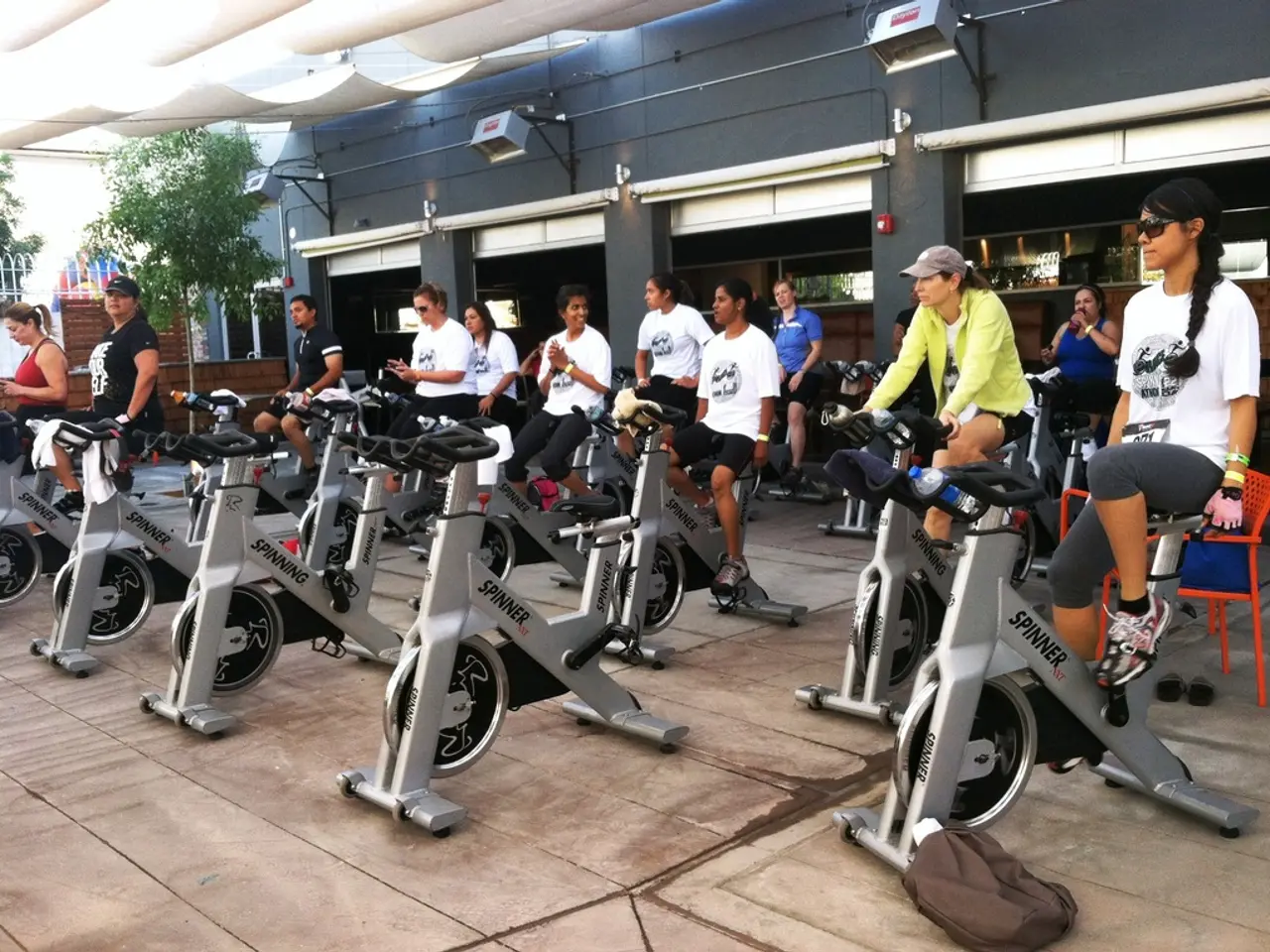Impact of Hydration on Physical Activity Efficiency
Exercise, whether short or prolonged, requires proper hydration to maintain optimal performance and health. Here's what you need to know about staying hydrated during physical activity.
For intense or prolonged exercise, sports drinks containing electrolytes and carbohydrates are beneficial. They help maintain fluid balance and energy levels, crucial for endurance and strength. However, for exercises lasting less than an hour, water is generally sufficient.
Older adults and children require special attention when it comes to hydration. Older adults often have reduced thirst sensation and renal function, making mindful hydration essential. Children, with their higher surface area-to-body mass ratio, are more vulnerable to dehydration.
Hydration is not just important for exercise performance; it's essential for overall health. Adequate hydration ensures efficient circulation, regulating body temperature, and supporting cardiovascular function. It also helps maintain blood volume, a critical factor for efficient circulation.
Starting exercise well-hydrated is crucial. Athletes should consume 5-7 ml/kg of water or sports drink at least 4 hours before exercise. Regular drinking before and during exercise is important to avoid dehydration and sustain performance.
During exercise, the goal is to replace fluid lost through sweat to maintain performance and prevent dehydration. Dehydration can impair muscle function, increase the risk of cramps, and reduce endurance and strength. It can also affect concentration, coordination, reaction time, and decision-making during sports and physical activity.
Inadequate electrolyte replacement can lead to hyponatremia (low blood sodium), muscle cramps, and impaired performance. Sodium, the primary electrolyte lost in sweat, is crucial for fluid retention. Including sodium in recovery fluids helps retain water and restore electrolyte balance.
Rehydration should replace 100-150% of the fluid lost during exercise over the next 4-6 hours. Monitoring body weight, urine color and volume, thirst sensation, bioelectrical impedance, and blood tests are methods to assess hydration status.
Hydration also plays a role in the replenishment of glycogen, a key energy source for the body. Consuming carbohydrate-rich foods or drinks aids in glycogen replenishment and enhances recovery.
Potassium, calcium, and magnesium also contribute to muscle contraction and relaxation. Even mild dehydration (1-2% body weight loss) can impair endurance performance. Maintaining hydration helps to stabilize core body temperature and reduces heat stress, lowering the risk of heat-related illness.
Individuals with certain medical conditions, such as kidney disease or heart failure, need tailored hydration strategies. Always consult a healthcare professional for personalised advice.
In conclusion, hydration is a crucial aspect of exercise, affecting performance, health, and recovery. Staying hydrated helps maintain energy levels, regulate body temperature, and support cardiovascular function. Always start exercise well-hydrated, drink regularly during exercise, and rehydrate adequately post-exercise to ensure optimal performance and health.
Read also:
- visionary women of WearCheck spearheading technological advancements and catalyzing transformations
- Recognition of Exceptional Patient Care: Top Staff Honored by Medical Center Board
- A continuous command instructing an entity to halts all actions, repeated numerous times.
- Oxidative Stress in Sperm Abnormalities: Impact of Reactive Oxygen Species (ROS) on Sperm Harm








